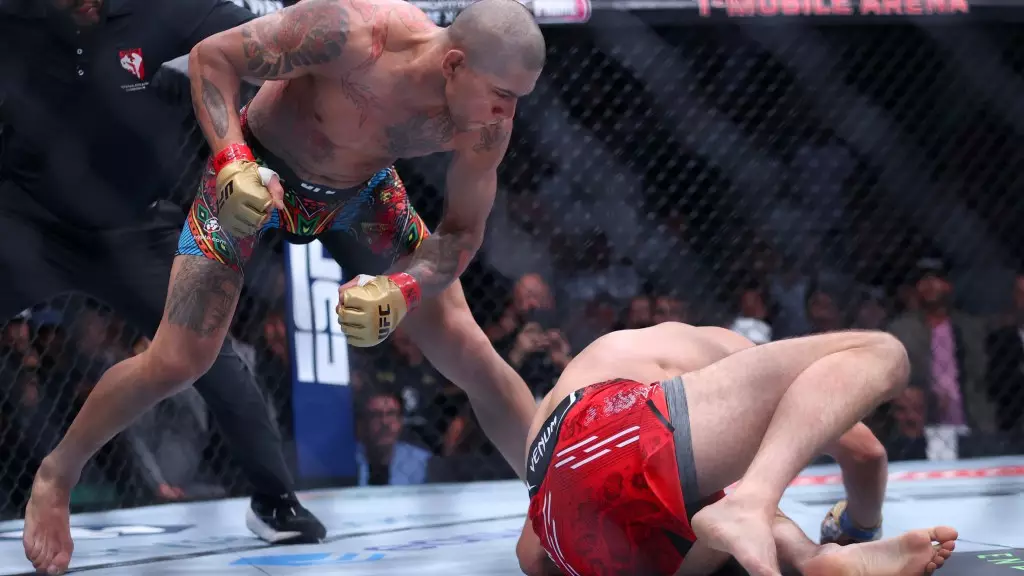Whether you’re an ardent fan of mixed martial arts or a casual observer, the upcoming match between Magomed Ankalaev and Alex Pereira at UFC 313 has generated palpable excitement. As Ankalaev steps into the octagon aiming for the light heavyweight title, former champion Robert Whittaker’s insights present a compelling narrative on the vital role wrestling could play in his potential success.
Wrestling: A Tactical Advantage
Whittaker’s advice for Ankalaev is notably clear: to take the fight to the ground early. This strategic approach doesn’t just rely on brute force; it highlights the critical importance of grappling in MMA. Wrestlers like Ankalaev, who bring an extensive grappling background into fights, can effectively neutralize strikers like Pereira, whose strength lies predominantly in his powerful stand-up game. As Whittaker articulates, the dynamic between a proficient grappler and a striker can tilt the fight decisively if one optimizes the use of their skills from the very beginning.
The inherent risk of engaging Pereira in striking exchanges cannot be understated. With a track record of knockouts in all four of his title defenses, Pereira has solidified himself not just as a champion, but as a lethal finisher. Whittaker’s emphasis on early takedowns—essentially initiating a ground game against a powerful striker—addresses a pivotal dilemma all fighters face: choosing when to engage versus when to evade.
The Psychological Element
Engaging in grappling can also serve a psychological purpose. By putting Pereira on the defensive and demonstrating the threat of a takedown, Ankalaev could create a sense of urgency. It forces Pereira to divert his energy towards defending against takedowns, which could hinder his effectiveness in executing his striking game plan. This shift in focus may yield opportunities for Ankalaev to land significant strikes or advance positions on the ground.
However, this is not a mere theory. It requires impeccable timing and risk assessment, as every moment spent engaging in grappling carries its own risks. If Ankalaev fails to secure an early takedown, he might find himself instinctively lured into a standing fight, which could ultimately jeopardize his chances of victory.
Assessing the Battlefield
Furthermore, the environment in which these fighters compete—the bright lights of T-Mobile Arena in Las Vegas and the inevitable pressures of championship fights—adds another layer of complexity. The atmosphere can elevate anxiety levels, and fighters with a preference for striking can gain psychological advantages when the stakes are high. Thus, preparation becomes crucial. Ankalaev must not only train but also cultivate the mindset necessary to stick to his game plan, focusing on his wrestling in what could be a fight of monumental implications.
In this high-stakes encounter, Whittaker’s advice illuminates a potential path to victory for Ankalaev. If executed properly, the strategic application of wrestling could redefine the dynamics of the bout and ultimately dictate the outcome. For fighters looking to dethrone a reigning champion like Pereira, this tactical approach could be the difference between victory and defeat.

